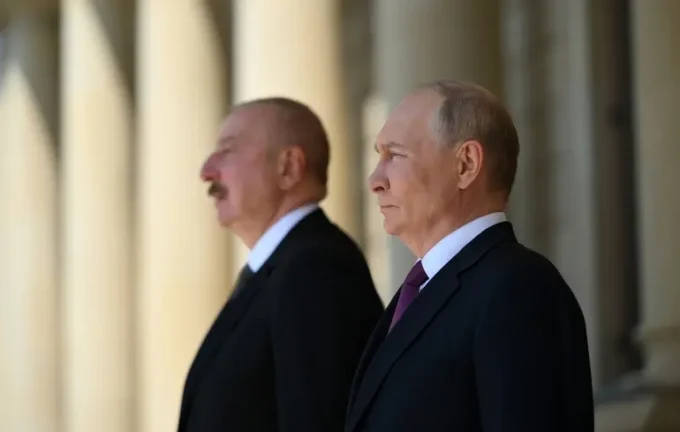Azerbaijan versus Russia: Bluff and the Weakness of Dictatorships

The ongoing tensions between Azerbaijan and Russia have become increasingly evident as manifestations of deep internal crises within both states. Both governments project an image of strength on the international stage, while concealing their inability to resolve domestic problems. Recent incidents, including the detention of Azerbaijani nationals in Yekaterinburg by Russian security forces, highlight a tactic of bluff and brutality aimed at maintaining control or pressing claims. In Russia, repression against migrants and journalists has become routine, while in Baku, responses to Moscow’s actions often involve violence and displays of force, exposing their underlying vulnerability. A core principle in this confrontation is the illusion that strength equals violence. Azerbaijani authorities, for example, detained Russian propagandists from `Sputnik`, using the same aggressive tactics used against Azerbaijani migrants in Russia. This symbolizes Baku’s capacity to respond even to a larger neighbor. Moreover, diplomatic relations worsened significantly after the incident in Grozny, where Russian air defenses shot down a passenger plane operated by the Azerbaijani airline, deepening the crisis. Russia responds through deceit and indifference, attempting to deny responsibility and minimize the impact of tragedies it caused. The killings of the Safarov brothers, justified with false claims, further deepen Azerbaijani outrage. Meanwhile, Russia uses old criminal cases as tools of political repression, supporting structures that terrorize migrants and minority groups. Simultaneously, regional geopolitics is shifting with the potential signing of a peace treaty between Armenia and Azerbaijan, which threatens to alter regional power dynamics. Turkey, as Baku’s strategic partner, advocates for closer ties, while Moscow, historically aligned with Armenia, is losing influence. Limited military and economic leverage constrains Russian options, particularly amid sanctions. Azerbaijani leader Ilham Aliyev’s assets, mostly registered on his family members in Russia, remain a key influence tool. Vladimir Putin’s strategy involves bluffing and warning, trying to intimidate Aliyev and his diaspora, while himself displaying internal weaknesses. Azerbaijan’s increasingly assertive policies demonstrate its readiness to respond decisively, raising stakes in this geopolitical game. Ultimately, Putin and Aliyev are engaged in a high-stakes match, and Ukraine faces potential losses or new opportunities to maneuver in the region.

